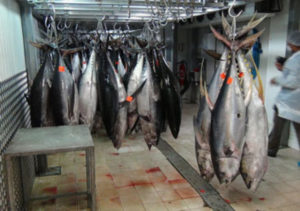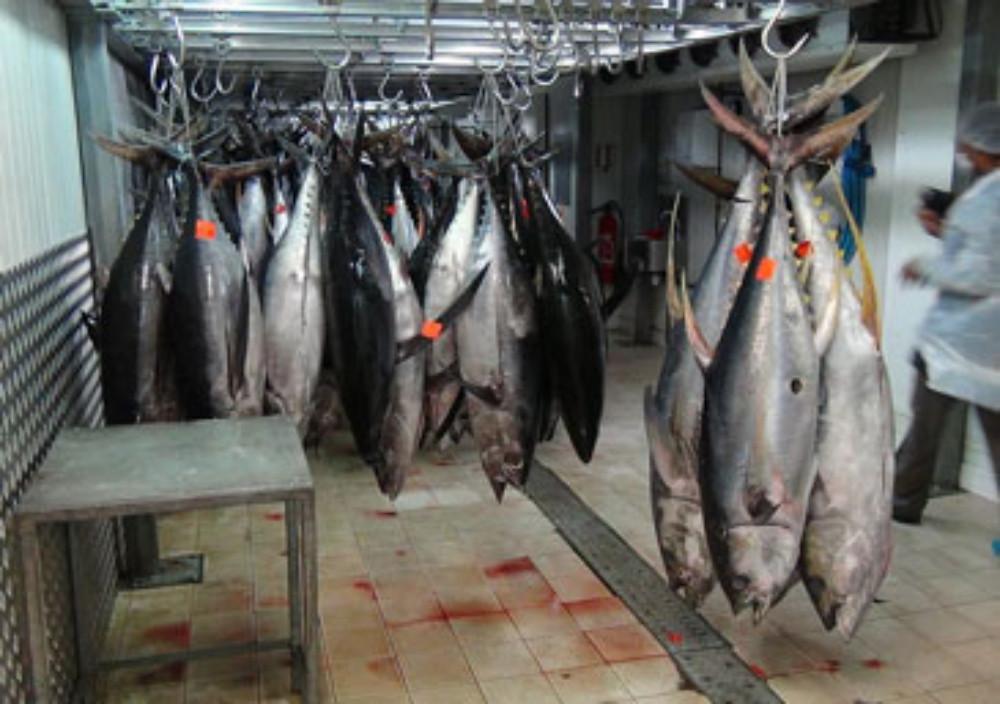 Cannery and national fish inspectors from Fiji, Papua New Guinea and Solomon Islands are currently undergoing specialised training in Levuka, Fiji, aimed at ensuring the production of canned tuna in the region meets the required standard for safe human consumption.
Cannery and national fish inspectors from Fiji, Papua New Guinea and Solomon Islands are currently undergoing specialised training in Levuka, Fiji, aimed at ensuring the production of canned tuna in the region meets the required standard for safe human consumption.
The Thermal Processing and Regulatory Audit training is organised by the European Union-supported Development of Tuna Fisheries in the Pacific Project (DevFish2) which is implemented by the Pacific Community (SPC).
In welcoming the 18 participants, Lomaiviti Provincial Administrator, Ekimi Rokoduru, stressed the importance of the training for Fiji’s tuna processing industry and the local economy.
“Such SPC regional training adds value to the Pacific Fishing Company Limited’s operation in Levuka in terms of supporting the skills of the locals employed in the factory,” Mr Rokoduru said.
“After initial plans to move sites, we’re pleased the tuna factory will remain in Levuka because it is the mainstay of the local economy, being the largest employer on the island,” he added.
The two-week intensive training involves the up-skilling of participants to ensure the process of canning fish at high temperature is observed and maintained so that the end product meets prescribed quality standards.
SPC’s DevFish Officer, Jonathan Manieva, said the training was both timely and critical as the tuna processing industry in the Pacific region experiences growth.
According to the Forum Fisheries Agency (FFA) 2015 Economic Indicators Report, the estimated tuna processing market share of FFA member countries doubled from 100,000 tonnes prior to 2013 to around 210,000 tonnes in 2014.
“As the industry grows, the need for human resource capacities in key specialized areas of the production line also grows. This technical and specialized training will enhance the skill sets of our nationals so they can fill roles that would otherwise be occupied by specialists from overseas. This is enabling employment of nationals at mid-management levels in the industry,” Mr Manieva said.
“The safe production of canned tuna fish is also a critical component of nutritional contribution of fish to food security for our people. And enhancing employment opportunities of our nationals in the sector contributes to individual and household income,” he said.
In collaboration with the Pacific Fishing Company Limited (PAFCO), the workshop participants also get the opportunity to undertake practical training sessions at the tuna processing plant’s factory floor.
“The need for such technical training is critical as the canned products are exported into overseas markets like the EU and US and export requires such technical thermal processing of cans to meet required standards,” PAFCO’s General Manager, Brett Carter, said.
“Thermal processing in canned fish is classified as a high risk operation and personnel have to be technically qualified and aware to deliver the canning process standards, ensuring canned fish is safe for public consumption,” he added.
The workshop ends on Thursday 3 December 2015.
Media contacts: Jonathan Manieva, SPC Fisheries Aquaculture and Marine Ecosystem Division, [email protected] or +679 733 6687
Mohammed Nazeem Kasim, EU Press Officer, [email protected]
